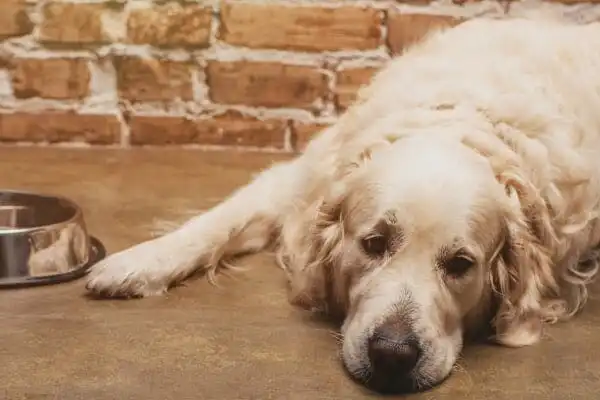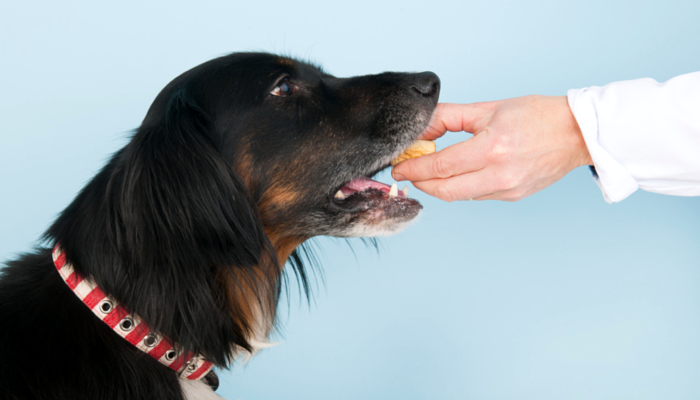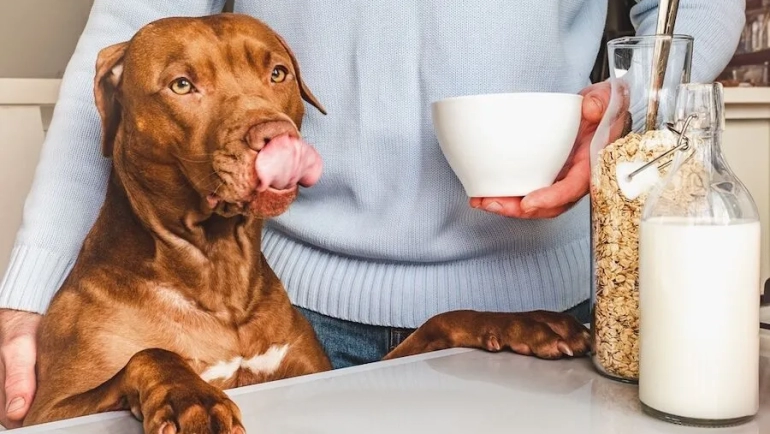103Views

Elderly Dogs Not Eating: Causes & Treatments
As our cherished canine companions age, it’s not uncommon to witness changes in their eating habits, leaving pet owners concerned about their well-being.
Senior dogs may experience a variety of factors that contribute to a decrease in appetite, ranging from physical discomfort to medical conditions.
In this in-depth exploration, we will delve into the common causes behind elderly dogs not eating and offer a wealth of strategies to encourage healthy eating habits, ensuring a fulfilling and nourishing life for our aging furry friends.
Understanding the Common Causes:
1- Dental Dilemmas:
The aging process can bring about dental challenges for senior dogs, such as tooth decay or gum disease, making chewing painful and dissuading them from consuming their regular meals.
2- Underlying Health Issues:
Various medical conditions, including kidney disease, liver problems, or gastrointestinal disorders, can impact a dog’s appetite, highlighting the importance of regular veterinary check-ups to catch and address issues early.
3- Changes in Senses:
Aging dogs may experience a decline in their sense of taste and smell, diminishing their interest in food. This factor underscores the need for palatable and aromatic meal options.
4- Medication Side Effects:
Some medications prescribed for elderly dogs may lead to a loss of appetite as a side effect, necessitating close monitoring and potential adjustments to their treatment plan.
5- Stress and Anxiety:
Environmental changes, the introduction of new pets, or the loss of a companion can induce stress in senior dogs, affecting their eating habits. Identifying and addressing sources of anxiety is crucial for maintaining a healthy appetite.
Read More: How Long It Takes A Dog To Digest
Strategies to Encourage Healthy Eating:

- Veterinary Consultation: Initiate a comprehensive veterinary examination to identify any underlying health issues. A vet can offer tailored advice and suggest appropriate diagnostic tests to pinpoint the cause of appetite loss.
- Optimal Diet Selection: Choose a high-quality, easily digestible dog food with flavors that appeal to your senior dog’s preferences. Additionally, consider consulting your veterinarian for guidance on selecting the most suitable diet for your dog’s specific health needs.
- Frequent, Smaller Meals: Break down their daily food intake into smaller, more frequent meals to accommodate their potentially reduced ability to consume large quantities of food in one sitting.
- Wet or Homemade Food: Moisture-rich or homemade diets can be more enticing for dogs experiencing appetite issues, providing a flavorful and easily digestible alternative to dry kibble.
- Warm Food: Warming your dog’s food enhances its aroma, making it more appealing. This simple technique can stimulate interest and encourage your senior dog to eat.
- Hand-Feeding: For dogs exhibiting extreme reluctance to eat, the personal touch of hand-feeding can create a positive association with mealtime, fostering a more enjoyable and stress-free experience.
- Nutritional Supplements: Collaborate with your veterinarian to explore the possibility of incorporating nutritional supplements into your senior dog’s diet. These supplements can address specific health concerns and provide essential nutrients for overall well-being.
How long can an elderly dog go without eating?
While a healthy adult dog might physically survive 3-5 days without food, it’s crucial to understand that this timeframe shouldn’t be used as a benchmark for safe waiting.
Conclusion:
Caring for an elderly dog requires a multifaceted approach, especially when addressing changes in appetite.
By understanding the potential causes of appetite loss and implementing thoughtful strategies, pet owners can contribute to their senior dogs’ health and happiness.
Regular veterinary check-ups, a nutritious and palatable diet, adjustments to feeding routines, and a nurturing environment all play pivotal roles in ensuring that our aging companions receive the care they need for a fulfilling and nourished life.


